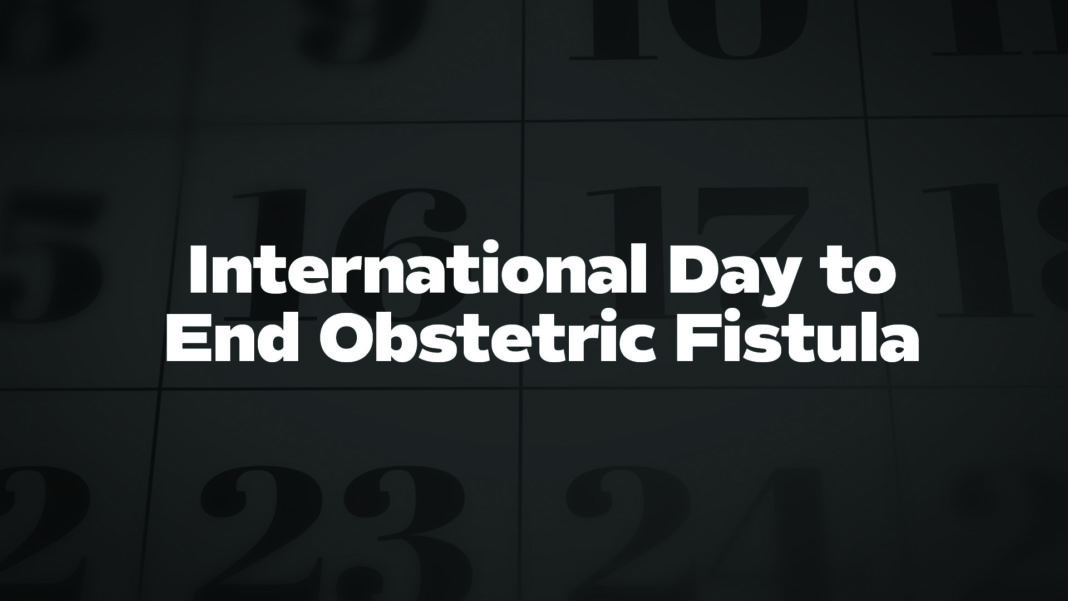Ntsoaki Motaung
The United Nations Population Fund (UNFPA) has urged strategic investments to ensure equitable access to quality maternal health services, aiming to prevent fistula cases and reduce preventable deaths among women and girls.
This call comes ahead of the International Day to End Obstetric Fistula, observed globally on May 23.
This year’s theme is ‘Breaking the Cycle: Preventing Fistula Worldwide’.
Obstetric fistula, according to the UNFPA, is a hole between the birth canal and bladder or rectum or both, caused by prolonged, obstructed labour without access to timely, quality medical treatment.
It often leads to chronic health problems, depression, social isolation and deepening poverty. Ninety per cent of fistula cases result in stillbirths.
“It is one of the most serious and tragic childbirth injuries. And it is preventable,” said UNFPA in a statement.
It further mentioned that the 2024 theme underscores the critical importance of proactive measures to prevent obstetric fistula and its far-reaching consequences.
“It also spotlights prevention and calls for urgent action to address healthcare and societal gaps and inequalities that lead to prolonged obstructed labour; the direct cause of obstetric fistula,” it said.
UNFPA also stated that by focusing on prevention, the theme aims to draw the attention of governments, community stakeholders, development partners, policy, and decision-makers to break this harmful cycle and to promote maternal health and well-being globally.
International Day to End Fistula is therefore a day to raise awareness, intensify actions, strengthen partnerships, and mobilise support to finally end this preventable and treatable condition.
The condition remains a significant health challenge, particularly in regions with limited access to timely medical care during childbirth according to UNFPA.
It said: “In Lesotho, the evidence reflects that facility delivery is high estimated at 77 percent but the quality of care is suboptimal thus exposing women to prolonged labour. Global statistics show that half a million women and girls in sub-Saharan Africa, Asia, the Arab States region, Latin America and the Caribbean are estimated to be living with fistula, with new cases developing every year. Yet fistula is almost entirely preventable.”
As the leader of the global Campaign to End Fistula, UNFPA provides strategic vision, technical guidance and support; medical supplies, training and capacity building, as well as funds for fistula prevention, treatment and social reintegration and advocacy programmes.
It also strengthens sexual and reproductive health care including timely and quality emergency obstetric services to prevent obstetric fistula from occurring in the first place.
According to UNFPA, evidence has shown that women and girls at risk of fistula are also at risk of maternal mortality, making advocacy and accelerated action towards ending fistula a matter of life and death.
Statistics show that globally, for every maternal death, 20 to 30 additional women experience childbirth injuries that significantly affect their quality of life and well-being.
In Lesotho, the Maternal Mortality Ratio is high, estimated at 566/100,000 live births.
In an interview with Dr Nonkosi Tlale, obstetrician and gynaecologist, she said awareness about ending Obstetric Fistula should be taken seriously not only on International Day but every day.
Tlale added that awareness about the condition should not only be made to women and girls at childrearing age but also to their spouses, in-laws, community leaders as well as adolescent girls and boys.
She said Obstetric Fistula was common in women who deliver their firstborn and are encouraged to go to health facilities for their deliveries.
“Obstetric Fistula is prevented if one gets timely assistance and can be corrected,” she said.
Tlale indicated that, when one happens to have the condition, they are encouraged to take at least three to six months to let the wounds heal so that they could be stitched and corrected.
“Even after being stitched women are encouraged to take another six months of healing without having sex,” she said.
Summary
- Obstetric fistula, according to the UNFPA, is a hole between the birth canal and bladder or rectum or both, caused by prolonged, obstructed labour without access to timely, quality medical treatment.
- Global statistics show that half a million women and girls in sub-Saharan Africa, Asia, the Arab States region, Latin America and the Caribbean are estimated to be living with fistula, with new cases developing every year.
- Tlale indicated that, when one happens to have the condition, they are encouraged to take at least three to six months to let the wounds heal so that they could be stitched and corrected.

Your Trusted Source for News and Insights in Lesotho!
At Newsday Media, we are passionate about delivering accurate, timely, and engaging news and multimedia content to our diverse audience. Founded with the vision of revolutionizing the media landscape in Lesotho, we have grown into a leading hybrid media company that blends traditional journalism with innovative digital platforms.








